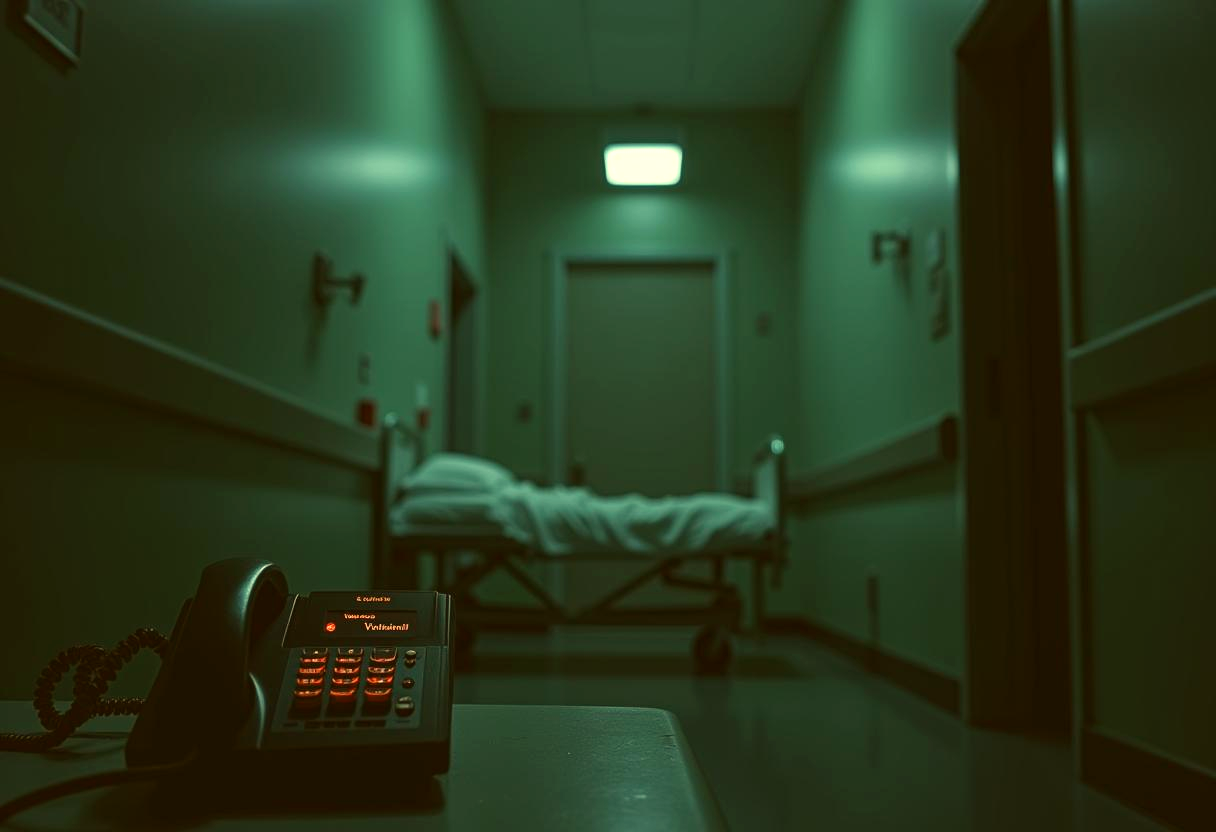Dr. Brian Hyatt built a reputation as one of Arkansas’s most respected psychiatrists. He ran a thriving private practice, served as the medical director of a psychiatric unit, and even held a leadership role at the Arkansas State Medical Board, overseeing ethical reviews of other doctors. On paper, he was an example of success in the medical field.
But beneath the surface, something far more sinister was happening.
For years, Hyatt trapped patients in his psychiatric unit, keeping them admitted long after they should have been discharged. Medicaid billing records show that during this time, he raked in more than $800,000 by claiming to provide extensive care—care that, in many cases, never actually happened.
Now, he’s facing felony charges, over 100 lawsuits, and a future that looks less like a medical success story and more like a cautionary tale of fraud, patient exploitation, and the loopholes in the Medicaid system that allowed it all to happen.
A Respected Doctor Turned Medicaid Fraud Suspect
For years, Hyatt held a position of influence in the Arkansas medical community. As the medical director of the Behavioral Health Unit at Northwest Medical Center-Springdale, he had control over how psychiatric patients were admitted, treated, and discharged. He also owned Pinnacle Premier Psychiatry, his private practice in Rogers, Arkansas, adding to his credibility.
His influence didn’t stop there. He was chosen as chair of the Arkansas State Medical Board’s Peer Review Committee, meaning he had the authority to assess and review the professional conduct of other doctors.
With so much power and prestige, few would have suspected that he was running one of the most egregious Medicaid scams in recent history.
How the $800K Medicaid Fraud Worked
Hyatt’s scheme centered around three key tactics: keeping patients in his unit longer than necessary, billing Medicaid for services he didn’t provide, and exploiting weaknesses in the system to avoid detection.
Patients admitted to his psychiatric unit often found that leaving wasn’t an option. Some checked in voluntarily, expecting to be discharged within a few days, only to be held for weeks without explanation. Others, who came in for minor issues, were allegedly heavily medicated and isolated to justify prolonged stays.
Family members who tried to intervene hit dead ends. Calls to Hyatt’s office went unanswered, voicemails were full, and requests for information were ignored. Many later discovered that, despite their loved ones having minimal contact with Hyatt, he had still billed Medicaid for extensive psychiatric evaluations and daily therapy sessions.
Investigators reviewing his Medicaid billing found glaring discrepancies. While surveillance footage showed Hyatt rarely spent time with patients, his claims suggested he provided hours of direct care. Some former patients stated they never met him in person—yet medical records documented ongoing treatment under his name.
To make matters worse, psychiatric units have broad authority over patient stays, making it easy for him to justify holding people against their will. Medicaid, which relies largely on self-reported documentation from doctors, didn’t catch the fraud for years.
The combination of unchecked power, a vulnerable patient population, and a flawed Medicaid oversight system made his scam remarkably easy to sustain.
Why No One Stopped Him Sooner
The fraud continued for years, even as patients and families voiced concerns. Complaints didn’t gain traction for several reasons.
Psychiatric patients are often dismissed or not believed when they report mistreatment. Many who later spoke out against Hyatt said they were ignored when they tried to raise concerns. For those who were heavily medicated, even understanding what was happening—let alone reporting it—became difficult.
Medicaid’s oversight process also played a role. The system relies heavily on trust, assuming that doctors accurately report the services they provide. Fraud audits are rare and slow-moving, with thousands of claims processed daily and little immediate verification. Unless a whistleblower steps forward or an audit is triggered, schemes like Hyatt’s can go unnoticed for years.
His leadership role at the state medical board may have also discouraged scrutiny. Few people in the medical community would have felt comfortable challenging someone with the authority to review and discipline other physicians.
It took multiple patient complaints, a federal Medicaid audit, and surveillance footage discrepancies before authorities finally took action.
Criminal Charges, Lawsuits, and the Collapse of His Career
Once the scam was exposed, the fallout was swift. Hyatt resigned from his position at the hospital, and by mid-2023, his private practice had permanently closed. His medical license expired in September 2024 and was not renewed.
Now, he faces felony charges for Medicaid fraud, with a trial scheduled for April 9, 2025. If convicted, he could face prison time and financial penalties.
The civil cases against him are piling up, with over 100 lawsuits already filed by former patients. Many claim they suffered emotional trauma, unnecessary medical treatments, and prolonged detainment due to his actions. Legal experts expect these cases could result in millions of dollars in settlements or judgments.
For Hyatt, the days of being a respected physician are over. The question now is whether he will walk away with fines and a ruined reputation—or if he’ll spend years behind bars.
How Medicaid Fraud Cases Like This Keep Happening
While Hyatt’s case is disturbing, it’s far from unique. Medicaid fraud remains a major issue in the U.S., with billions of dollars lost every year to fraudulent billing, unnecessary procedures, and unethical hospital practices.
The healthcare industry has seen similar cases in recent years:
- In Texas, Dr. Jorge Zamora-Quezada stole $325 million by diagnosing patients with fake conditions to justify expensive treatments.
- In Michigan, Dr. Farid Fata gave chemotherapy to healthy patients so he could bill insurance.
- In Chicago, Sacred Heart Hospital ran an illegal kickback scheme where doctors were paid to admit patients for unnecessary surgeries.
Hyatt’s case fits into a larger pattern of fraud that thrives in an overburdened system where oversight is slow and billing fraud is hard to catch.
For every case like this that gets exposed, how many others are still slipping through the cracks?
Final Thoughts
Dr. Brian Hyatt’s $800K Medicaid fraud wasn’t just about stealing money. It was about abusing his power over vulnerable patients, exploiting a flawed system, and getting away with it for years.
His case is now set to be one of the biggest Medicaid fraud trials in Arkansas history, and with over 100 lawsuits still pending, the full scope of his impact may take years to uncover. Read more about the shocking allegations here.
The question remains: Was he just one bad doctor, or is this a symptom of a much bigger problem in our healthcare system?


